Illy, an 84-year-old Italian "veteran", confronts Starbucks and wants to open a store in China.
For professional baristas, please follow the coffee workshop (Wechat official account cafe_style)
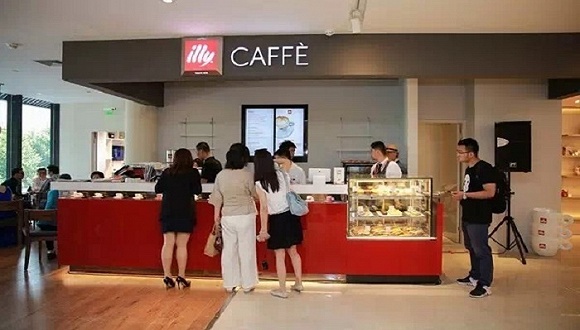
Recently, Italian coffee brand illy has made a new move in the Chinese market by opening a boutique coffee shop in Hangzhou.
Although illy's brand has long been popular and red logo is common, 75 per cent of its business in China comes from hotel and catering companies on the B side of to.
Is the 84-year-old veteran going to be "just front" with Starbucks this time?
Illy plus store, to face more end consumers
If your impression of illy coffee still lingers on the capsule coffee machine, or the square logo hanging in some cafes.
So now your understanding of it needs to be updated.
Not long ago, this coffee brand, known as the "Italian national treasure", opened a boutique coffee shop illy Caff è in Hangzhou.
From the visual effect: there is no lack of modern sense in the color block collocation of gray and black and logs, while the logo elements of white characters on red background are quite eye-catching, very illy.
The price of the product looks mild, with a "popular lover" latte priced at 32 yuan, compared with 30 yuan for the less common Viennese coffee, and a range of tea products priced at 28 yuan 30 yuan.
In addition, there are desserts, coffee cups and other surrounding sales. Either way, it's what you think a cafe looks like.
The name illy coffee is no stranger to people in the industry. Founded in 1933 in the seaport city of Trieste in northeastern Italy, it produces more than 11 million kilograms of coffee beans a year and sells them all over the world. One widely cited figure is that about 6 million cups of illy coffee are consumed by consumers around the world every day.
In the past, however, the name appeared more often on the supply lists of high-end hotels and restaurants, providing them with the materials and equipment needed to make coffee. Or you may have seen small squares with "illy" logo hanging in some cafes to show that the store uses that brand of coffee beans.
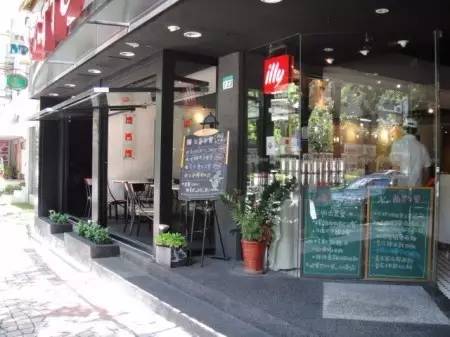
▲ often appears in the red logo of some restaurants.
Now, illy doesn't seem to want to waste the incremental market of To C. According to its current plan, illy will continue to open more new stores for more end consumers in Beijing, Shanghai, Dalian and other cities in the future.
The advantages of industrial chain and the challenge of differentiation
In fact, this is not the first time the illy brand has opened a store in the form of a "cafe" in China. Some sources show that as early as 2008, it introduced a similar form of sub-brand espressamente illy (Imando).
However, the test of the water at that time was quite cautious. A relevant official once said: it is not easy to find a shopping mall that is consistent with the tone of espressamente illy.
From raw material suppliers to shop operators, illy seems to have "figured it out" and may bring a new opportunity for the 84-year-old coffee brand.
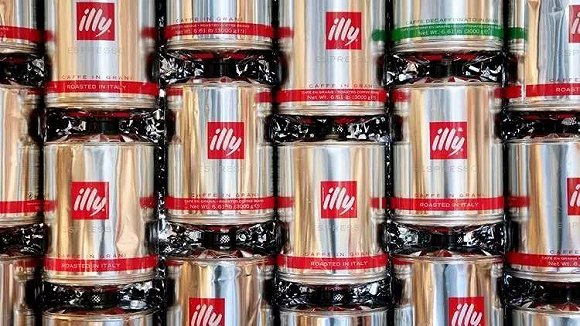
In the past, ▲ 's illy was more of a raw material supplier.
However, the difficulty of getting through the industrial chain can be imagined.
Facing the store form of consumers, we often focus on experience, large number of users, and many uncontrollable factors. In terms of brand operation and image building, there are too many details to be maintained.
The terminal of upstream enterprises focusing on raw material supply often undermines the efficiency of the division of labor in the industrial chain, and also faces various difficulties such as market, channel, operation, talent and so on.
But none of this is a zero-to-zero thing for illy: it already operates in more than 200 Imando stores around the world, and the ability to maintain a balanced taste and standardized taste of blended coffee beans is a strong backing for illy.
On the other hand, how to talk about the coffee culture in Italy may be a focus of illy Coffee's efforts in the domestic market.
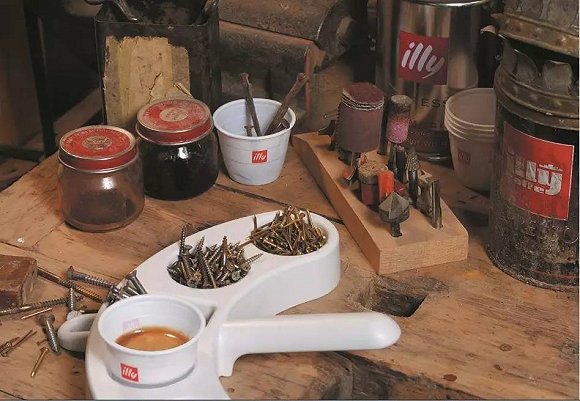
How would ▲ illy tell the story of Italian coffee?
Domestic consumers have experienced the trend led by Starbucks, whether illy can bring a differentiated sense and experience through the scale of the number of stores and the expression of Italian coffee art will be the next test.
But at least the high-end brand image that illy has worked so hard for years in the Chinese market will not be in vain. In the minds of many consumers, the square logo of illy is synonymous with "can drink good coffee"-which will also become a basis for reducing the cost of consumer choice.
Conclusion
"in China, the popularity of coffee culture comes before coffee consumption, which is very interesting, and sooner or later it will be combined with consumption. If coffee becomes a part of Chinese people's daily life, then coffee consumption will really rise. " Illy Global CEO Andrew Illy has said so.
The good news is that the domestic coffee market is in the early stages of releasing its potential. The consumer market is growing at an annual rate of 16%, several times the world average.
The bad news is that illy now has far more competitors than it did a decade ago.
-End-
Important Notice :
前街咖啡 FrontStreet Coffee has moved to new addredd:
FrontStreet Coffee Address: 315,Donghua East Road,GuangZhou
Tel:020 38364473
- Prev

What the heck! Starbucks, which can eat pineapple oil, and Starbucks, which does not offer any seats.
Professional barista exchanges please pay attention to the coffee workshop (Wechat official account cafe_style) Starbucks' unique way of doing business is that every Starbucks store likes to integrate the design into a different local environment to pursue the ultimate user experience. Starbucks in the Zhenxuan shop cafe at No. 2, Zhongshan third Road, Guangzhou, sounds fresh, and the storefront's own small building.
- Next
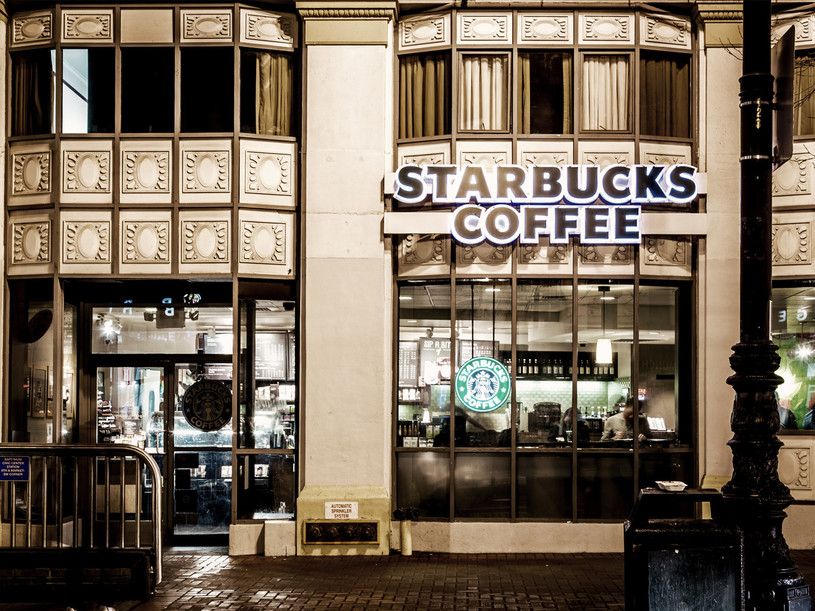
AI barista launched this summer, how did Starbucks'"coffee technology soul" become?
Professional baristas exchange please follow the coffee workshop (Wechat official account cafe_style) Photo Source: Davide DAmico Starbucks in the mobile device layout early, how on earth does its digital spirit and technical soul come out? Starbucks was laid out early in terms of mobile devices. As early as 15 years ago, smart phones tried digital ordering service before it became popular. No.
Related
- What documents do you need to go through to open a coffee shop? coffee shop coffee shop certificate processing process
- How to purchase Coffee beans in small Cafe how to choose a suitable supplier for domestic Coffee supply Company
- How to drink Starbucks Fragrance White Coffee? how to make Australian White Coffee? what Italian coffee beans are recommended?
- The Story of Flora Coffee: the name of Flora Coffee Bean and the implication of the Flowers on Florna Coffee
- How much does a cup of coffee cost? How much is the profit of a cup of coffee? What is the profit of the coffee shop in a year?
- Yunnan small Coffee, known as "fragrant Coffee", introduces the characteristics of Alpine Arabica Coffee producing areas in Yunnan, China
- 2023 latest Starbucks full menu price list how much is a cup of Starbucks coffee what is better to drink the most popular hot and cold drinks recommended
- Starbucks different kinds of Coffee Price list Starbucks menu 2023 Top Ten Best drinks in Starbucks
- Starbucks Spring praise Comprehensive matching Coffee Bean theme Story Packaging implication and taste description
- The cost of a cup of coffee latte American coffee cost price and selling price

